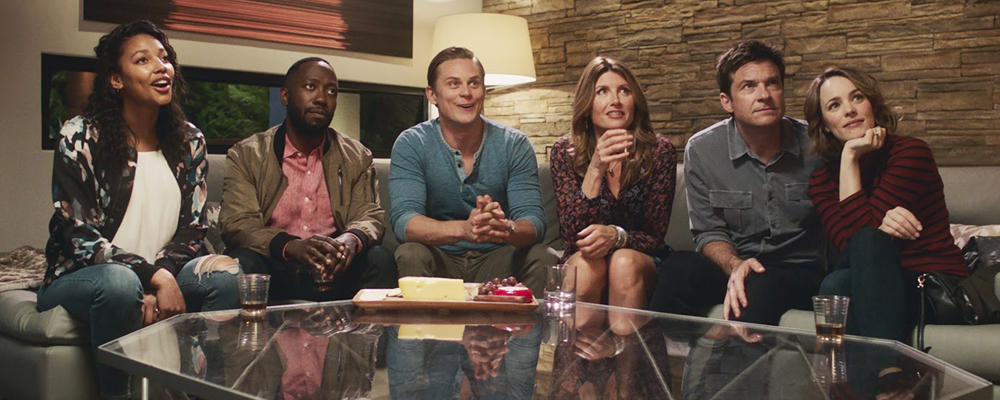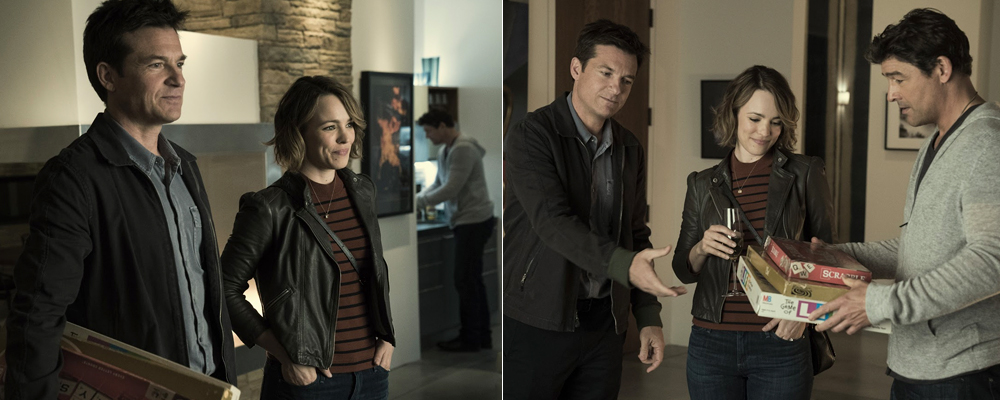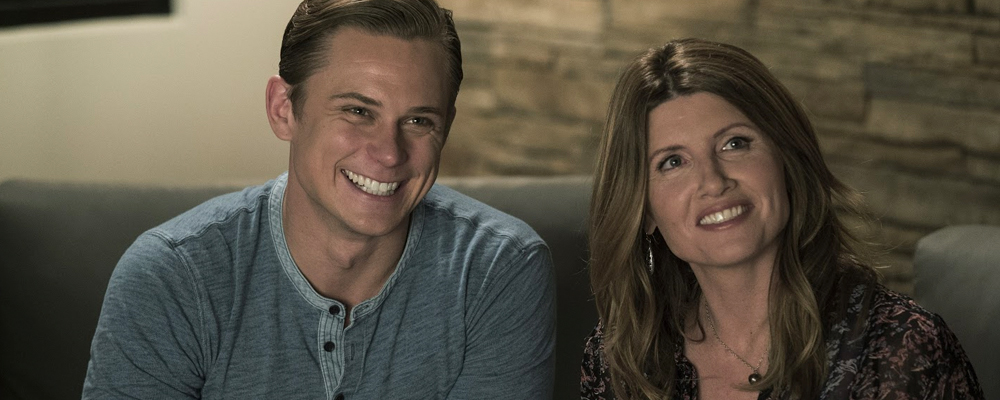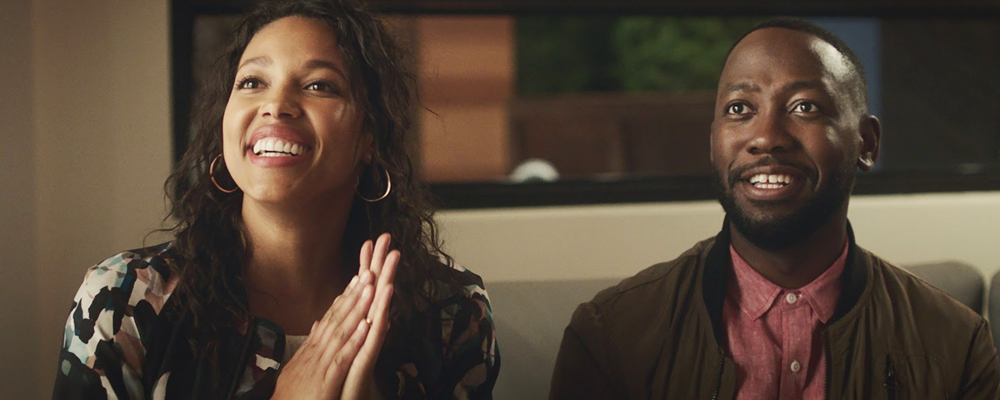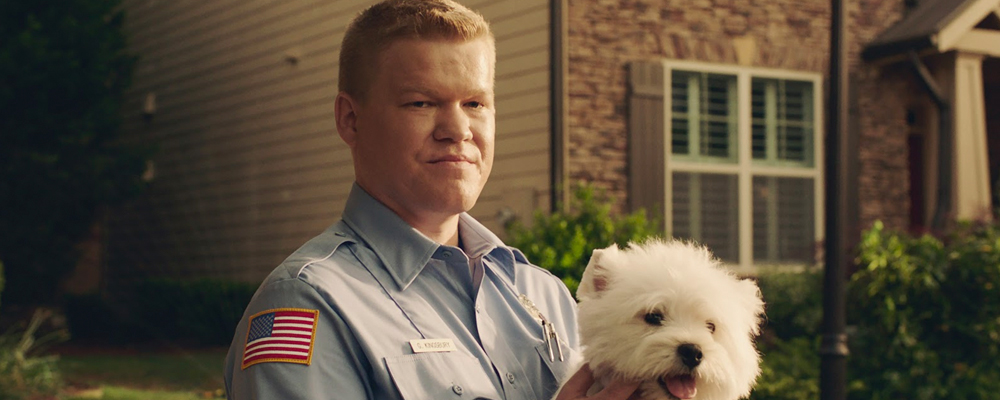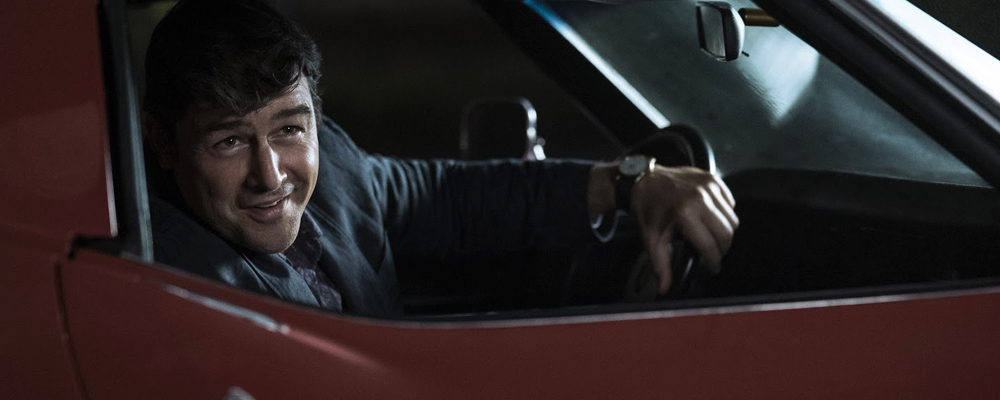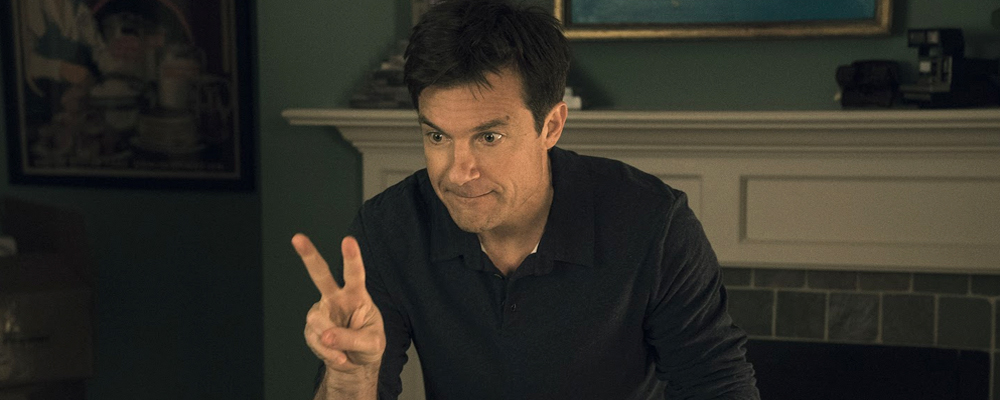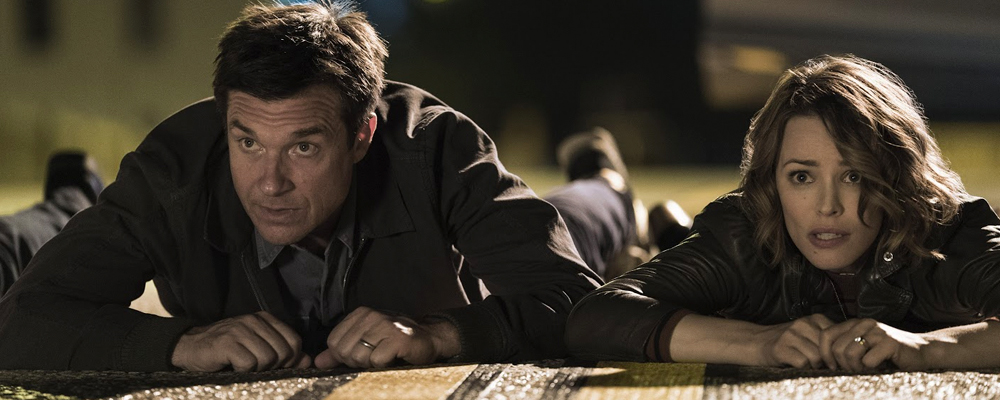‘Game Night’ Is a Few Moves Short of a Win
Aaron Berke
Jason Bateman and Rachel McAdams star in the comedic crime caper “Game Night.” It follows three couples whose longstanding game night tradition is suddenly thrown for a loop when their evening of role-playing turns real. As the six friends become roped into a criminal conspiracy, the film’s whacky hijinks tread over territory both fresh and familiar. The jokes are often funny and the idiosyncratic characters amusing, but the movie loses out on an opportunity to truly stand out when its best plot device – its meta game-within-a-game narrative – crumples halfway through the film. The increasingly formulaic second half replaces fresh comedy with stale plot points and tired monologues about family values.
“Game Night” opens with a silly montage demonstrating how Max (Bateman) and Annie’s (McAdams) relationship has been defined by their weekly game night. Now married, Max and Annie continue their weekly tradition with their couple friends Kevin (Lamorne Morris) and Michelle (Kylie Bunbury) who’ve been together since they were 14, and their dimwitted bachelor friend Ryan (Billy Magnussen), who brings a different girl to every game night, the latest being Sarah, (Sharon Horgan) who’s a bit more intellectually inclined than the others. The stakes of their game night ratchet up considerably when Max’s better-in-every-way brother Brooks (Kyle Chandler) invites them to his swanky house for a special game. Brooks explains that this game will involve him being kidnapped, while the six of them are given clues to his location. The first couple to figure out his location will win the keys to his car. Everything proceeds seemingly on schedule when a couple of kidnappers burst in, tussle with Brooks, and take him from the house. There’s just one problem – the kidnappers are real, and Brooks is in serious trouble.
There’s a period in which the audience is aware that the game is real, but the characters aren’t, where the film gloriously succeeds. The kidnapping is depicted as a high-octane action sequence, in which Brooks fights off the kidnappers with kitchen utensils. Meanwhile, Max, Annie and the other couples sit on the couch totally indifferent, assuming the whole thing is a farce. Later, Max and Annie track the kidnapped Brooks down to a bar, where they burst in wielding a hand gun (which they assumed is fake) and hold up everyone inside. Max and Annie force the patrons into ridiculous Yoga positions, not realizing they’re threatening actual kidnappers.
Unfortunately, the thrill of watching these zany antics comes to a halt when Max’s gun goes off, tipping them off to the fact that the scenario is real. The bullet pops the film’s energy like a hot air balloon. Everything afterwards deflates into familiar comedic territory, in which the couples knowingly take part in the action and the film increasingly relies on physical comedy and sight gags. It’s a shame, because “Game Night” had an opportunity to engage in truly clever meta storytelling, in which the characters are never aware of the danger they’re in until the very end. This would have allowed the film’s wild antics to keep building into fresh and outrageous comedic territory, where convenient escapes continually allow the characters blissful ignorance of their predicament.
In the absence of comedic creativity, the film is instead forced to fall upon formulaic storytelling and cliched character arcs. After the couples discover the game is real, they decide to team up in order to save Brooks from the kidnappers. The couples attempt to break into the lair of one of the film’s villains, Donald Anderton, (Danny Huston) in order to steal a coveted jeweled egg which Brooks’ kidnappers demand in exchange for his freedom. Plenty of physical comedy ensues in the escape from Anderton’s house, but it would have been much more amusing if the characters didn’t know they were in danger. Because the characters know they’re facing a life and death situation, the escape sequence features several death-defying moments where we’re supposed to seriously worry about our protagonists’ safety. “Game Night” doesn’t need this kind of suspense, nor does it need the emotional payoffs that it insists on providing.
Take Max and Annie’s relationship. The film establishes early on that Max and Annie are trying to conceive their first child, but that Max is suffering from low motility due to stress. Over the course of the film, we discover that Max, despite his competitive relationship with his older brother, is secretly jealous of Brooks’ independent lifestyle, and yearns for the same freedom. Annie and Max have a heart to heart about their lifestyle choices while they’re stuck in the middle of Anderton’s house facing possible murder. The scenario obviously isn’t meant to be believable, but the issue isn’t believability, it’s the jamming of unnecessary pathos into a movie that doesn’t need it. Annie and Max working out their issues becomes a distracting subplot as the movie’s stakes increase. By the end, Max and Annie are opining over the virtue of family while taking down Brooks’ kidnapper in a departing jetliner.
High stakes and emotional resolutions are part of a stale Hollywood formula that a comedy like “Game Night” doesn’t need. The film works best when it’s just funny for the sake of being funny. That’s why Bateman and McAdams, who have fun with their parts, are too busy getting saddled with rote story beats to provide the film’s funniest moments. Instead, the real stand-outs in “Game Night” are Morris and Bunbury, who have great comedic chemistry. They successfully sustain a single running gag in which Kevin discovers Michelle may have slept with a celebrity when they were on a break. Throughout the film Kevin continually tries to guess which celebrity it was, and the answer is a great comedic pay-off worth sticking around for.
Jesse Plemons also steals scenes as Max and Annie’s weird neighbor Gary, who really wants to join them for game night and continually tries to invite himself. Gary spends his time standing outside his house and staring at his neighbors as they awkwardly try to pretend they’re not having their friends over. Gary is a police office who stands stiff as a board, uttering precise, exacting phrases, which is particularly funny when he’s describing cooking recipes in a flat monotone. No one can describe letting lamb shanks simmer quite like Plemons. The beady-eyed actor proved himself the master of psychotic likability in “Breaking Bad,” and he brings a similar dimension to Gary. Later in the movie, when Gary becomes a critical piece of the game board, Plemons makes him a force to be reckoned with, plowing through the movie’s stale third act and imbuing it with his own special blend of idiosyncratic playfulness.
“Game Night” has a lot pieces that work, but they don’t ever assemble into a full chess board. The movie is funniest early on, when it engages in a meta narrative, allowing viewers to watch as the characters blindly careen into a kidnapping plot. But once the characters become self-aware, the movie in kind becomes aware of the single stale formula that sustains its narrative. “Game Night” is often fun, and the actors all do their part to amuse. But at the end of the day the film is mediocre at best, playing a game with audiences that’s all too familiar. Perhaps the most telling problem is that the film totally circumvents a plot element that’s needed in a film about game playing: You need to root for someone to win. With “Game Night,” it seems that everyone involved simply lost sight of their goal.
“Game Night” opens Feb. 23 in theaters nationwide.

